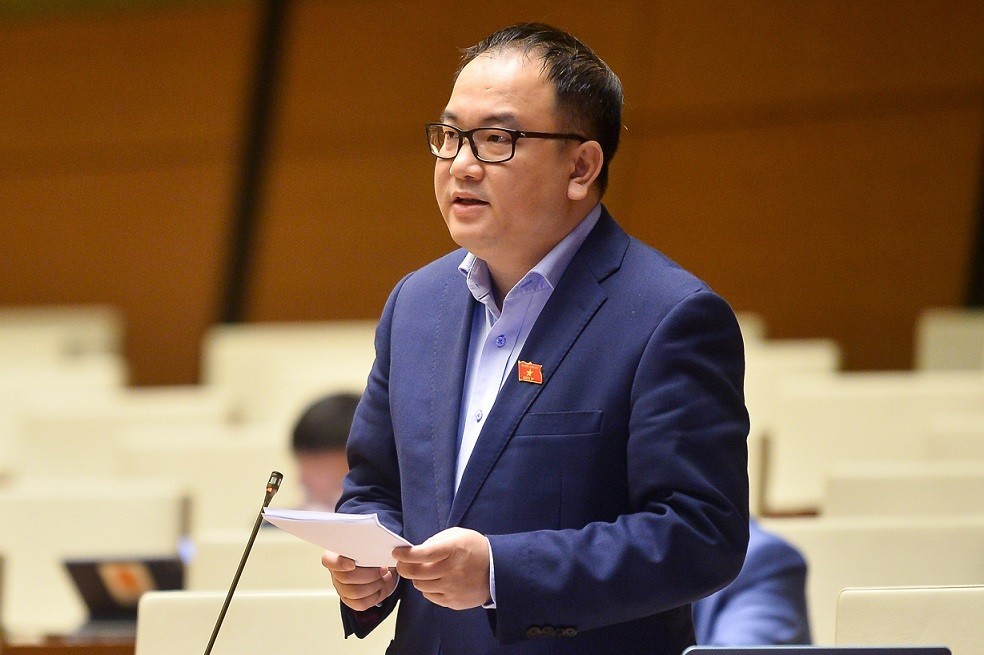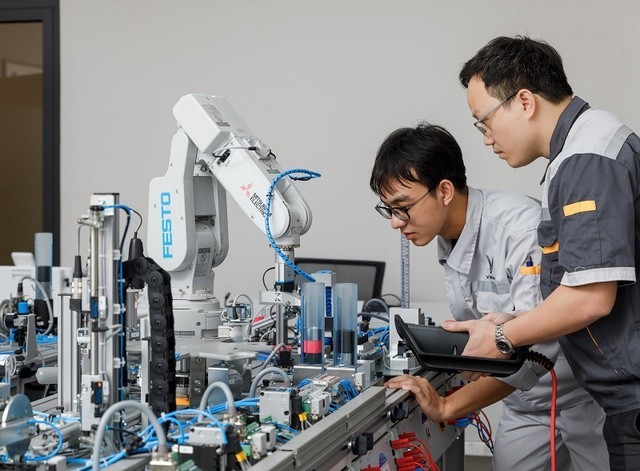
Vietnam’s social security policy: People are the center, the goal and driving force
Latest
 |
| Pham Trong Nghia, National Assembly's Deputy, full-time member of the National Assembly's Social Committee. (Photo: WVR) |
As a member of the National Assembly, Mr. Nghia elaborated the social security goals aiming at the development of the people and taking the people as the center and ensuring that all people can access and benefit from the social security policies in Vietnam.
He affirmed that throughout the process of national defense, construction and development, the party has repeatedly confirmed Vietnam's development model, which is to take people as the driving force, the center and the goal of development.
Recently, in the book "Some theoretical and practical issues about socialism and the path to socialism in Vietnam", General Secretary Nguyen Phu Trong affirmed the point of view that: "We need a society in which the development is truly for the people, not for the profits by exploiting and trampling on human dignity. We need economic development to go in tandem with progress and social justice, rather than only widening the gap between rich and poor and deepening the social inequality".
In Mr. Nghia’s opinion, there are two aspects to this point of view.
Firstly, the Party and State have always focused on people as a determining factor in development. In this respect, human resources are the most valuable assets which must be appreciated and protected.
Secondly, the highest goal of all socio-economic development policies is also for the people, to ensure security and a better life for the people. In this respect, social security policies should be developed and expanded for people so that they can benefit the achievements as much of the development of the country.
While reaffirming the approach to ensuring people’s welfare rights, Mr. Nghia pointed out certain limitations in implementing Social Security policies. According to him, in the world, the right to have social security is one of the basic human rights, classified as economic, social and cultural rights. This Right is enshrined in Article 22 (also referred to in Article 25) of the Universal Declaration of Human Rights (UDHR) 1948.
In Vietnam, the right to have social security was first enshrined in the 2013 Constitution as a basic right of citizens. Specifically, Article 34 of the Constitution stipulates: "Citizens have the right to social security”.
Thus, all Vietnamese citizens have the right to social security, regardless of gender, religion, belief, occupation or social class.
According to Mr. Nghia, Vietnam is one of the few countries in the world that recognizes the right to social security in the Constitution. However, the social security system in Vietnam still has some shortcomings, specifically the following:
Firstly, Vietnam's social security has been taking a rights-based approach with universal coverage, covering the entire population, especially in health and education fields. However, due to limited resources for social security, priority must still be given to the poor, vulnerable, people in remote areas and ethnic minorities. Therefore, the percentage of coverage of social security is still low.
Secondly, the current social security system in Vietnam is built on a multi-layered system. However, the connection as well as cohesion among the pillars and social security layers are not strong enough to support each other in preventing, minimizing risks and ensuring social security for people.
Third, the social security policy must ensure that all people have a minimum standard of living according to national standards. However, in reality, due to limited resources, the social security policy has not yet guaranteed all people to have a national standard of living and each type of social security policy has its different standards, such as the poverty line, minimum standards, basic social services.
Therefore, there is still a large number of people living below the minimum standard of living.
Regarding the fundamental challenges for social security policy in the coming time, Mr. Nghia considers that the social security system in Vietnam faces four basic challenges.
First, the challenge of an aging population. Vietnam has entered a period of population aging since 2017 when the elderly population accounted for 10% of the country's population.
 |
| Vietnam’s social security policy: People are the center, the goal and driving force. (Photo: WVR) |
According to the assessment of international organizations, Vietnam, as one of the countries with the fastest aging rate in the world, will enter the period of aging population in 2036 and a very old population in 2056.
The model of social security based on the principle that working people taking care of elderly people who can not work will face great challenges. Moreover, a number of socio-economic problems have arisen, putting pressure on the social security system.
Second, the challenge of the “middle income trap” reduces resources for social security. The fact that Vietnam becomes a middle-income developing country is an opportunity and an important condition for the development of the social security system in the 2021-2030 period.
However, Vietnam is still a low-middle-income developing country and facing great challenges in terms of promoting growth and socio-economic development so as to avoid the "middle income trap".
It is a matter to focus on resources and have a breakthrough solution to maintain a high and sustainable growth rate, improve growth quality, increase the size of Gross Domestic Product (GDP) and GDP per capita, which would become the premise and basic conditions for implementing a social security policy with a rights-based approach towards universal coverage as provided for by the Constitution.
Third, the challenge of climate change impacts. Climate change, especially global warming trends and sea level rise, will lead to an increase in the frequency and extremes of natural phenomena, such as droughts, floods, storms, tsunami, followed by disasters for humans and production activities...
Vietnam is forecasted to be one of the 5 countries most affected by climate change, with many risks of serious consequences for agriculture, farmers, rural areas and for the whole country. Climate change is a huge challenge for Vietnam in socio-economic development, especially in ensuring social security.
Fourth, the challenges of other non-traditional security such as energy security, food security, cyber security, if not well managed, will seriously affect socio-economic life.
The disadvantaged groups, especially those in the private sector, face more difficulties, creating great challenges for the welfare system.
With respect to actions and policies being taken to face these challenges, Mr. Nghia stressed on the golden population period, a unique opportunity in the "life cycle" of the country and with appropriate socio-economic policies to protect, build and promote human resources - the nation's most valuable asset.
At the same time, to improve the law, continue to further institutionalize the recognition, guarantee and promotion of the right to social security which has been enshrined by the Constitution.
In addition, to develop and improve the social security system in a close and balanced relationship with the development and completion of the social care system to meet the increasing needs of the people.
To increase the State's investment in welfare policies and programs with the view that investment in social security is investment for development and plays a pivotal role.
Finally, enhancing the application of information technology in implementing as well as increasing the efficiency and reducing the cost of social security management.

















